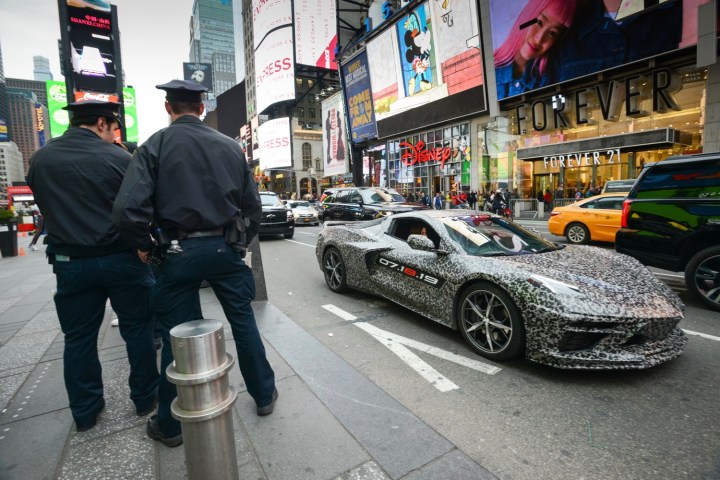 The upcoming mid-engine 2020 Chevrolet Corvette C8 promises a new level of performance, but the aftermarket might hate it.
The upcoming mid-engine 2020 Chevrolet Corvette C8 promises a new level of performance, but the aftermarket might hate it.
The next-generation Corvette will be the first to place its engine behind the driver, and that engine will be controlled by a “unique encrypted ECU system,” according to Muscle Cars & Trucks (via Motor Authority). The encryption will prevent changes to the ECU software in pursuit of more horsepower, according to the report.
Computer controls are a vital aspect of modern cars, so tuners often begin playing with software before they fiddle with boost pressure or camshafts. But that may be more difficult with the mid-engine Corvette. The sports car will likely be one of many upcoming cars to use General Motors’ new electrical architecture. GM has said cybersecurity was a major priority in the development of that architecture, and the automaker’s cybersecurity measures may be a barrier to aftermarket tuners, according to the report.
Any unsuccessful attempt to reprogram the ECU will reportedly trigger a “recovery mode,” requiring the entire system to be rebooted. The report indicated this may not be something the average person can do, leading to a “bricked” Corvette.
The increasing complexity of modern cars has posed a challenge to tuners, but where there’s a will, there’s a way. When it launched in 2008, the Nissan GT-R was thought to be too complicated for tuners to handle, but over the past decade it’s become a darling of the aftermarket. Given time, it’s possible that tuners will find a way to crack even an encrypted ECU. Chevy hasn’t made any official statements on the matter, but it wouldn’t be surprising for the automaker to cooperate with the aftermarket, which has become an important tool for promoting new cars.
Exactly what engine will be controlled by the allegedly encrypted ECU has been the subject of much speculation. Some reports have indicated the new Corvette will use an evolution of the current car’s 6.2-liter pushrod V8, but Muscle Cars & Trucks claims it will get a dual-overhead cam V8 code-named LT2. Previous reports also claimed a midrange Corvette model would get a Cadillac-derived 4.2-liter twin-turbocharged V8, while the range-topping Corvette would get a 5.5-liter twin-turbo V8 making a monstrous 850 horsepower — almost 100 hp more than the current flagship Corvette ZR1. We’ll find out when the mid-engine Corvette finally makes its public debut July 18.
Editors' Recommendations
- Bold style alone can’t muscle Chevy’s new Blazer EV to the head of its class
- 2022 Chevy Bolt EV and Bolt EUV: More electric cars to love
- At $60,000, the 2020 Corvette Stingray may be losing money for GM
- The new Corvette’s 0-60 and top speeds were spied from an engineer’s notebook
- Chevrolet’s 2020 Corvette gets supercar-like speed without the price


